TIME IN MY HANDS (rule #4)
 We talk about timing in comics, but really there is no time except in a periodical sense. i.e. 'next issue'. All the pages of a comic book arrive simultaneously. If it happens that Magneto shows up surprisingly on the last page, I've never met a kid who didn't already know this before he got the book out of the store.
We talk about timing in comics, but really there is no time except in a periodical sense. i.e. 'next issue'. All the pages of a comic book arrive simultaneously. If it happens that Magneto shows up surprisingly on the last page, I've never met a kid who didn't already know this before he got the book out of the store.Here is a) the front cover of X-men 17 and b) here is page 20 of same. These two incidents are more or less synchronous, in more ways than one. There is a lapse of about 1.23 seconds while the kid gets the book open. (and another few seconds before he has disobeyed the imperative on the cover and told all the 'living souls' within earshot.) However, there is one whole month between image a and image c) issue 18, allowing for variation in promotional images getting out ahead of the book etc..

That's all that can be said for definite about timing. Unlike the movies, where good or bad timing is a measurable fact ( that's why they do test screenings), in comics everything else on this subject is fiction. And like all good fiction, it requires a suspension of disbelief on the part of the reader. In fact it requires a little more than that. It requires complicity between the artist and his audience. This thing that we do, we are going to pretend that it is analogous to time. That is the unspoken agreement at the outset. And because it is unspoken, we cannot complain that a reader didn't know about it, especially in these days when we expend so much effort in attracting new readers. We need to offer them a contract with no hidden clauses. And beyond that, we have no control. In prose novels it takes an act of will to read the ending ahead of getting there, but in comics it can happen so easily by accident. And I'm not even talking about the unavoidability of taking in a whole page at first glance. Part of the humour, or drama, of comics should involve an allowance for that. As artists and writers we cannot prevent the reader's seeing ahead accidentally any more than we can stop some lug from giving away the score of the match whose replay we are going to watch fresh later tonight.

I find myself recalling a very clever piece of work that Alan Moore and Dave Gibbons (I know Dave's reading this) made circa 1983 titled Chroncops, where the whole short story was playing mischievously with the concept of time. The authors quite cleverly laid all the information before us in panel after panel but we didn't see it because we were looking for something else. At one point the cops arrive back at hq in an earlier time slot and have to avoid themselves in the lobby. Sure enough, when we flip back the pages, we see what we didn't see before because we weren't looking for it, the two characters half-hiding behind the potted plant (even after pulling the trick once they pulled it a second time in the same short story).
edit to include: The mighty Dave Gibbons has commented at some length on two of my previous posts in this series, here, and here. One day you'll say, "and they were giving away all this information for free!!"
For me the conventional three-panel gag can never work again because I know there's supposed to be a gag in the third one, and If I haven't guessed it then I've glimpsed it. the third panel is not distant enough in space and time for me to avoid reading it simultaneously with the first.
Thus, if your piece of work involves some intricate business about the order of reading, and timing, you need to synchronise watches at the start, and a 'spoiler warning' ain't going to cut it. You cannot depend upon conventions of the form. You need to work it into the fiction in some way.
CAMPBELL's RULE #4: In comics timing is a fiction. Deal with it like the rest of your fictions.
(if this post has been too 'zen' for you, don't fret, the Geckos will be back tomorrow.)
Another thing about timing; in comic books, if a book's due out in June, you need to get it finished at least by June. In the book market it's different. For The Black Diamond Detective Agency, due out in June I had to have it wrapped up by the previous July. I'm disoriented.
Sorry those samples are very old. I think that's the last time I got excited about a villain showing up again(substitute your own). (art on the 'page 20' by the hugely underappreciated Werner Roth. He drew X-men for a couple of years following this one.)
Labels: my rules
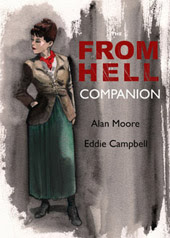


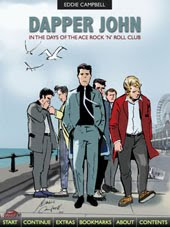
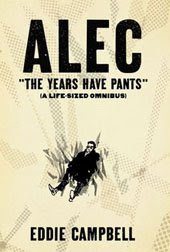
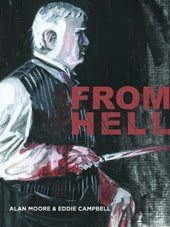
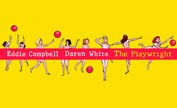
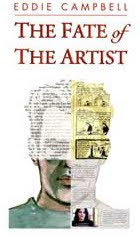


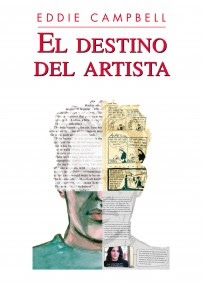
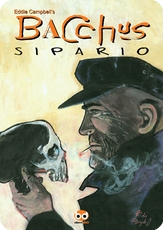
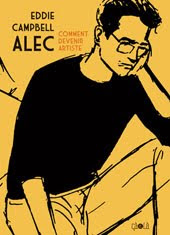

13 Comments:
Hmmm, what else can I line up for you to shoot down? Is this technique to be completely abandoned now, dose this only apply to comics that wish to be a little bit more then the rest? I've seen some comics suffer horribly for not using it. Did they fail souly because they're upstarts? Further more, are you sure that this isn't just a personal preference, due to that fact that you see the inner workings of the story? I'm not disagreeing with you, of course. I just like to see what you'll say. Thanks. Keep those rules coming. Oh, and just one more thing. I someone said you had to make a really good comic, that broke all of your rules, or else a duck the size of the sun was going to poop on the Earth (WHAT?) do you think you could do it?
Let's not throw the baby out with the bathwater -- surely there's still a great deal of power in the good old-fashioned page turn. I'm totally on board with page-as-unit (and had a lot of great comics moments ruined for me by my peripheral vision), but unless you habitually flip through an entire comic before beginning it (which is more likely with something new than a new chapter of something familiar), you still literally cannot see what comes next after a page turn.
Because I was reading it today, it's on my mind: CROMARTIE HIGH SCHOOL by Eiji Nonake is a delightfully over-the-top, deadpan absurdist comedy, told in relentless 4-to-8-page scenes. After a while, you start to get used to the rhythms of the thing, and now I find myself grinning in expectation as I approach every single page-turn reveal. Nonaka sets them up brilliantly.
Do check it out, Eddie and everyone else.
After all, comedy is 80% timing -- and surely comedy isn't impossible in comics!
Nonaka, sorry.
Eddie said "Unlike the movies, where good or bad timing is a measurable fact ( that's why they do test screenings), in comics everything else on this subject is fiction."
Was just reading about David Mamet's complaints about test screenings in the NYT:
"They relieve the moviemaker of responsibility for his product and they encourage the viewer-juror to watch his own reactions to a film rather than the film itself, rendering his opinions less than useless."
Another point re: audience subjectivity is that people are now used to watching "faster" films, with shorter scenes and many more edits than in Hollywood product of twenty years ago. So an older film can seem "slow" to a modern audience simply on account of editing rhythm. As for things happening in real time, I'd love to see a test reaction to a Tarkovsky film once he'd settled into one of his 10-minute takes. Most shots in modern films or TV last a very few seconds; try counting them.
I know this strays from what you're saying about comic pages arriving at once but beyond the technical, sequential aspect, time in cinema or TV is very much an artificial construct, even when it pretends it isn't, as in 24. Comic timing is different, there's something else going on there. Buster Keaton's pratfalls are still funny despite being 80 years old.
Interesting you can't read three panel gag strips; I read a fair few webcomics, most of which are humour strips and don't have that problem at all. Some of them avoid the problem by re-aligning the panels vertically, which makes it more difficult to spoil the gag.
(E.g. Questionable Content)
I'm the type of reader who spoils everything. I can't help but flip ahead. But I find that if the work is of any quality it will stay with me regardless. I'm aware of it with my own comics. With my webcomic it's fairly easy to keep secrets. You can't flip ahead if there's nothing to flip to, but it has to be able to survive whenever it gets printed. (We'll see if it does!) I do avoid BIG secrets and reveals and all that jazz mainly because its not my thing, AND, any readers like me would ruin it in a second.
I am my own worst audience!
Hmm. Yeah, I'd agree time is a contract with the reader, but no more than any other medium, surely? I take the point that comics are more easily worked around than other mediums, but the contract is easily broken in books, who hasn't glanced at the pages as they open a book to where they were, or glances at the page underneath the one they've just finished as they turn over? Or is that just me? Movies are a different thing, but by the same token I think most of us are aware that the big computer trick the hero learns in the first five minutes is going to be important at the end. Action movies are just as formulaic as the three panel gag, and most of us have worked out where that is going.
Mind, playing with the concept of timing is intriguing, whatever the medium. Morrison played around with it in his Animal Man run, and then there's 12 Monkeys, Gilliam's remake of some foreign film I should really look up the title of, Chris Nolan's Memento, Tarantino's Pulp Fiction and Singer's The Usual Suspects, which really plays around with the fiction of timing in an interesting way. Interesting that all those directors have a relationship with comics. There's a thesis there for someone.
What was that book Robinson and Yeowell did, um, 67 Seconds? Where the book was set in 67 seconds or something. Kind of a precursor to 24, when you think about it, although I'm sure prior examples exist.
Wow. Just hit this page on a google. Some thought gone into that position, at any rate. "Timing attempts to explore and document a few of the instinctual manipulations and realizations of time through dissection of visual and textual timelines existing on the two-dimensional page." Makes you wonder what was in all the tea.
Oh, that looks more brutal than what I meant.
I said "Action movies are just as formulaic as the three panel gag, and most of us have worked out where that is going."
I meant that most of have probably cracked the action movie formula by now, not that yeah, we all know how a three panel gag works... sorry. Damn, now I have to pretend I know the mixed up word in the funny colour again. I dare someone to build a strip using those in speech balloons.
Steve.
La Jetee. It's by Chris Marker, who also made Sans Soleil. And you should add Lynch's 'Mulholland Drive' to that list. And probably 'Lost Highway' too.
Christopher,
I could throw out all my rules and make a saleable comic. I've done it often. I'm talking about refining the language to make it more efficient, persuasive, and capable of communcating intelligence. If i'm illustrating a job for marvel (I've done two or three believe it or not), all of that is surplus to requirements.
Leigh
Will check Cromartie. that supports what I was saying. You have clearly entered into an 'agreement' with the work.
comedy isn't impossible. that's why i quoted Chronocops. I'm just trying to show that there are many things we need to question.
John
Mamet's point taken.
I was watching The Italian Romance (Can't remember its Italian title) with Anne the other day on dvd. I was impatient through the whole thing because it was moving too slowly. We tend to absorb info at a very fast rate. Though i've been with old people who do not.
Keaton = genius. Hayley Campbell and I watched a bunch of his movies over a couple of weeks last year. They seem to be available in excellent versions of late. the General !!!! he has never been bettered. I know jackie Chan loves Keaton. Interesting to watch Chan's best movies with that in mind.
Hi to martin and marcos!
steve
checked that link. Joanna Estep?
go down to her 'the panel' example 2
take the three plates seen without frames around them, now we see them with square frames.
"The viewer subconsciously recognizes the panel, reads the images as a sequence, and is consequently moved through time."
i disagree. most viewers would think of bathroom tiles ( I used to test stuff on my mother in law a lot). A viewer could only see this as a sequence in time if the contract had been agreed upon beforehand. An intelligent person who had never seen comics before ( I have met many) would be unlikely to see a movement through time. We would have to do much more than just put squares next to each other. this is of the same order as the 'nested system' mentioned a few days ago. One has to learn, or be taught, to see that way.
Hi, Tom
Estep again:
http://www.newsarama.com/general/Timing/Timing1.htm
a china cup in a panel. Now a china cup spread over three panels.
"When a single image is split between three panels, it will read as three separate moments in time. "
I disagree. My mother in law (late) would have seen it as a broken cup.
here's another:
long apanlel with the cup and saucer at one end:
"Also, the panel’s size in relation to its contents makes for a more atmospheric read, further implying a longer span of time. When a long panel is employed, elements of tension and suspense also come into play, because the reader may expect someting to happen."
my mother in law would have seen a table set for one.
now a panel with the cup inserted in a larger panel with a doiley
"When one panel exists within, or is positioned on top of the first, it implies that the two events are taking place simultaneously."
all of this is too decorative to possibly be interpreted as events in time.
anyway, thanks for linking Steve. all of this proves my point, that timing only exists on that two dimensional surface because we have all agreed to play the game.
there is nothing natural about it whatsoever.
eddie
Chronocops was great fun to do and was a good test run for the even more ambitious Dr Manhattan issue of Watchmen. The chief technical difficulty was making sure that the lettering fitted in every instance of the repeated panels, and so relates to the previous topic in a typically eerie and synchronistic way.
Ah, Silver Age X-Men comics and time played like a banjo by Alan Moore.
I used to wonder if there really were a "Werner Roth". I even conjectured at one time that he was pseudonym for several other artists press-ganged to complete various projects. Roth was, indeed, a decent artist.
Post a Comment
Subscribe to Post Comments [Atom]
<< Home